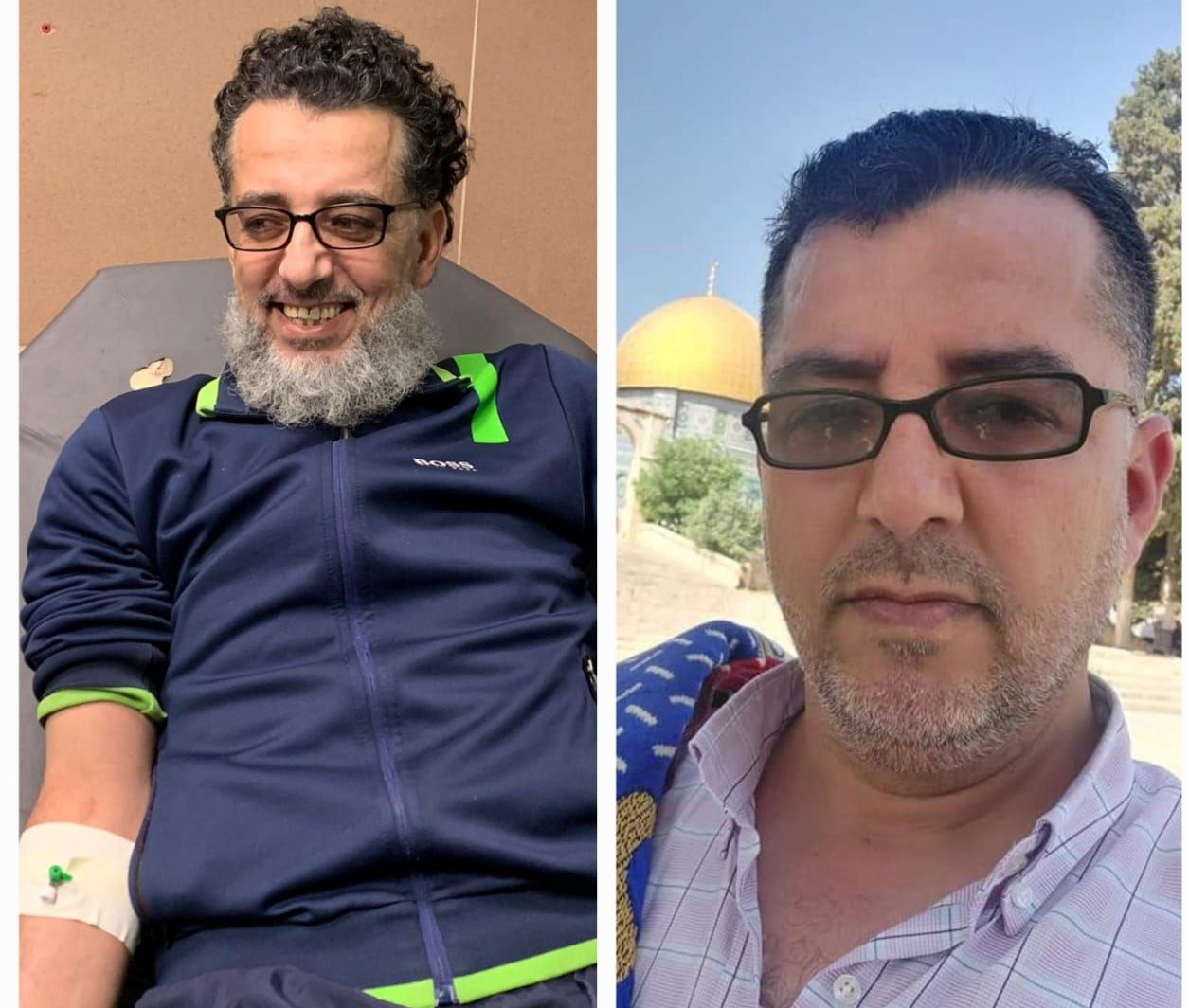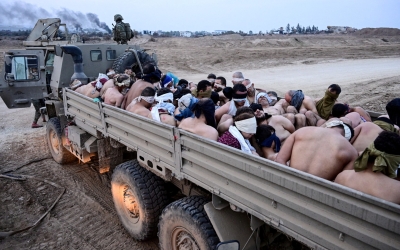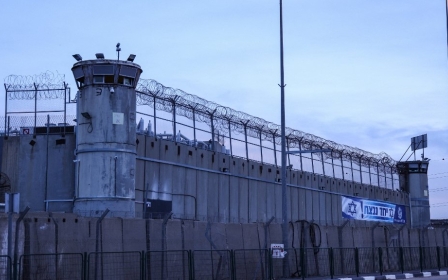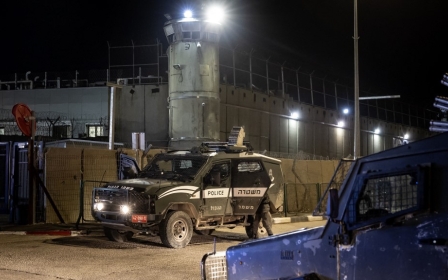Palestinian prisoners living 'never-ending nightmare' in Israeli detention this Ramadan
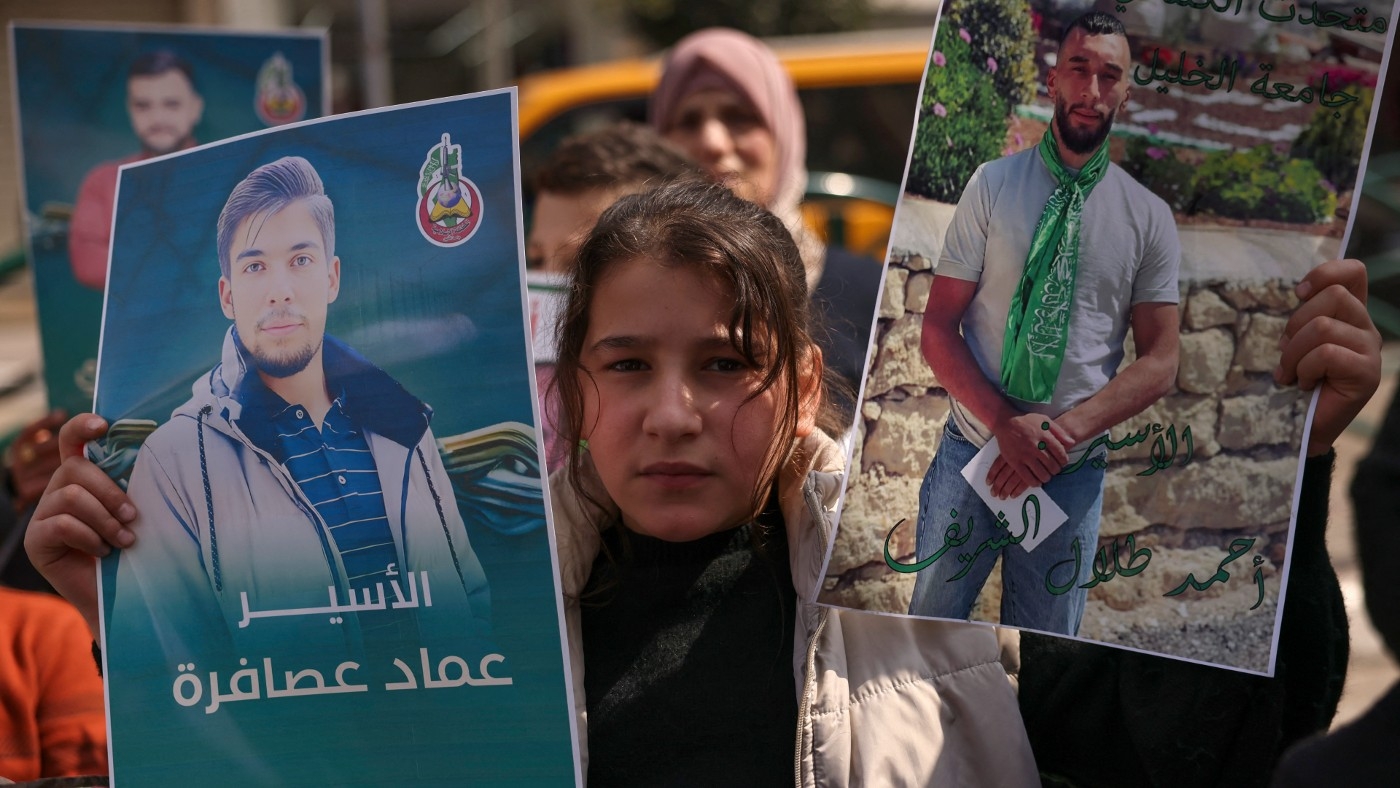
Youssef Srour did not know if Ramadan had begun or not.
Arrested on 18 October from his home in Ni'lin, west of Ramallah in the centre of the occupied West Bank, Srour was in an Israeli prison in the Negev (Naqab) desert on 10 March.
"The prisoners don't have any means of communicating with the outside world. If the jailers find a wire in the room or batteries, all the prisoners are beaten, punished, taken out of the room and all their belongings are confiscated," he told Middle East Eye, explaining that they all estimated the start of Ramadan based on when they had arrived at the prison.
After six months in administrative detention, the 49-year-old Palestinian was discharged to hospital a week ago. He was seriously underweight and showed signs of fatigue and neglect. Srour told MEE that he could not count the number of times he had been brutally beaten during those months in prison.
Since the Hamas-led attacks of 7 October, the Israeli army has carried out a massive, ongoing arrest campaign across the occupied West Bank, targeting almost 8,000 Palestinians, including women and children, the sick and elderly.
New MEE newsletter: Jerusalem Dispatch
Sign up to get the latest insights and analysis on Israel-Palestine, alongside Turkey Unpacked and other MEE newsletters
According to the Palestinian prisoners' rights group Addameer, there are currently an estimated 9,100 political prisoners being held in Israeli prisons, of which 3,558 are administrative detainees, meaning they are being held without charge or trial.
Israel has taken prisoners from Gaza, describing this as a necessary part of their operations against Hamas. In February, the Israeli army arrested and imprisoned an 82-year-old Palestinian woman in Gaza under a law aimed at detaining unlawful combatants.
'In short, they were feeding us only so that we wouldn’t die'
- Youssef Srour, Palestinian prisoner
According to lawyers and human rights organisations that monitor Palestinian prisoners, these six months have been one of the worst time periods ever, with Ramadan in jail described by Srour as a "never-ending nightmare" and by others as the worst they have experienced in decades. Prayer is forbidden, as is reading the Quran.
Prisoners have been exposed not just to physical assault, but to other violations including starvation, sleep deprivation, cutting off contact with their families and the withholding of water.
Like other former prisoners, Srour was targeted in the crackdown that followed 7 October. Held without charge or trial, he lost 42kg in prison. Medical examinations carried out after his release showed that he was suffering from a severe nutritional deficiency, so doctors advised him to only eat soup for the next month.
This Ramadan, the food given to prisoners has been no different to their usual diet. There is one meal a day, consisting of 12 tablespoons of rice, three tablespoons of lentil soup and 50 grams of chopped cabbage. Prisoners report that the water they are given tastes like chlorine.
"In short, they were feeding us only so that we wouldn't die, not to satisfy our hunger," Srour said.
The Negev prison, described in January by Palestinian prisoner Louay al-Taweel as being an exact copy of the notorious US camps Abu Ghraib and Guantanamo Bay, was also a site of regular beatings for its inmates, Srour told MEE.
Srour said that he was assaulted four times a week. More than 20 Israeli prison guards would violently beat one prisoner at a time, he said, until they bled or became immobile. Then the guards would depart, leaving the other prisoners to treat their comrade with water.
"The x-rays showed that I had a fracture in the third and fourth vertebrae of my spine as a result of the severe beatings. Most of the prisoners suffered from broken ribs and deep wounds in the head," Srour told MEE.
"I have been arrested five times previously, but this month of Ramadan is the worst in Israeli prisons. Despite this, the prisoners have hope of being released soon," he said.
Constant anxiety
Namat Dweik has been living in a constant state of anxiety since her 20-year-old daughter Areen Qawasmi and 76-year-old father Aziz Dweik were arrested.
The Hebron resident saw her father detained in October, shortly after the war began, and then her daughter arrested in December.
'Because of the starvation policy against prisoners, it has become difficult for them to practice their religious rituals during Ramadan'
- Tala Nasser, Addameer
Aziz Dweik, a Hamas member who was elected chairman of the Palestinian Legislative Council in 2006, had suffered a stroke a month before his arrest and needed continuous treatment and follow-up checks, something that Israel does not allow Palestinian prisoners.
Some prisoners released from the Negev prison told Dweik's family that they would no longer be able to recognise him because of his extreme thinness and neglect.
"Israel didn't agree to a lawyer visit for my father so that we could check on him. After four months of procrastination, it allowed a lawyer to see him for only 10 minutes," Namat Dweik told MEE.
Her father, who has lost 30kg, told the lawyer that food is very scarce and that the medical conditions of prisoners are not taken into consideration. The rice is not cooked well, he said, the water is too hot to drink and prayer is prohibited.
"During Ramadan, I miss my father and my daughter. This month used to be special with their presence. Now everything is empty and we don't feel anything but anxiety and longing," Namat said.
Withheld food
Despite the frugal portions, the prison administration deliberately delays the delivery of meals to prisoners until two hours after Iftar, the fast-breaking evening meal.
Prison guards also conduct inspections and count the prisoners before the meals are given to them, as part of a systematic policy to frustrate them.
Tala Nasser, a lawyer with Addameer, told MEE that Ramadan this year comes at a time when complete isolation is being imposed on Palestinian prisoners.
Nasser said that the Israeli Prison Service had prevented lawyers from the Red Cross from visiting prisoners, in addition to the torture and ill-treatment being meted out by guards, which she said had resulted in the deaths of 13 prisoners since 7 October.
The canteen, the only store available to prisoners, which provided them with meals, has been closed, leading to the inmates losing more than 20kg of weight on average.
"Because of the starvation policy against prisoners, it has become difficult for them to practice their religious rituals during Ramadan, which they are already prevented from performing under several pretexts," she said.
Nasser described what is happening to the prisoners as a series of crimes committed against them.
These tactics are most brutal for prisoners from Gaza, whose number, conditions of detention and casualty rate are not known.
Prisoners from Gaza are beaten every day. Their screams, say the other inmates, can be heard echoing down the corridors of the prison.
Middle East Eye delivers independent and unrivalled coverage and analysis of the Middle East, North Africa and beyond. To learn more about republishing this content and the associated fees, please fill out this form. More about MEE can be found here.


